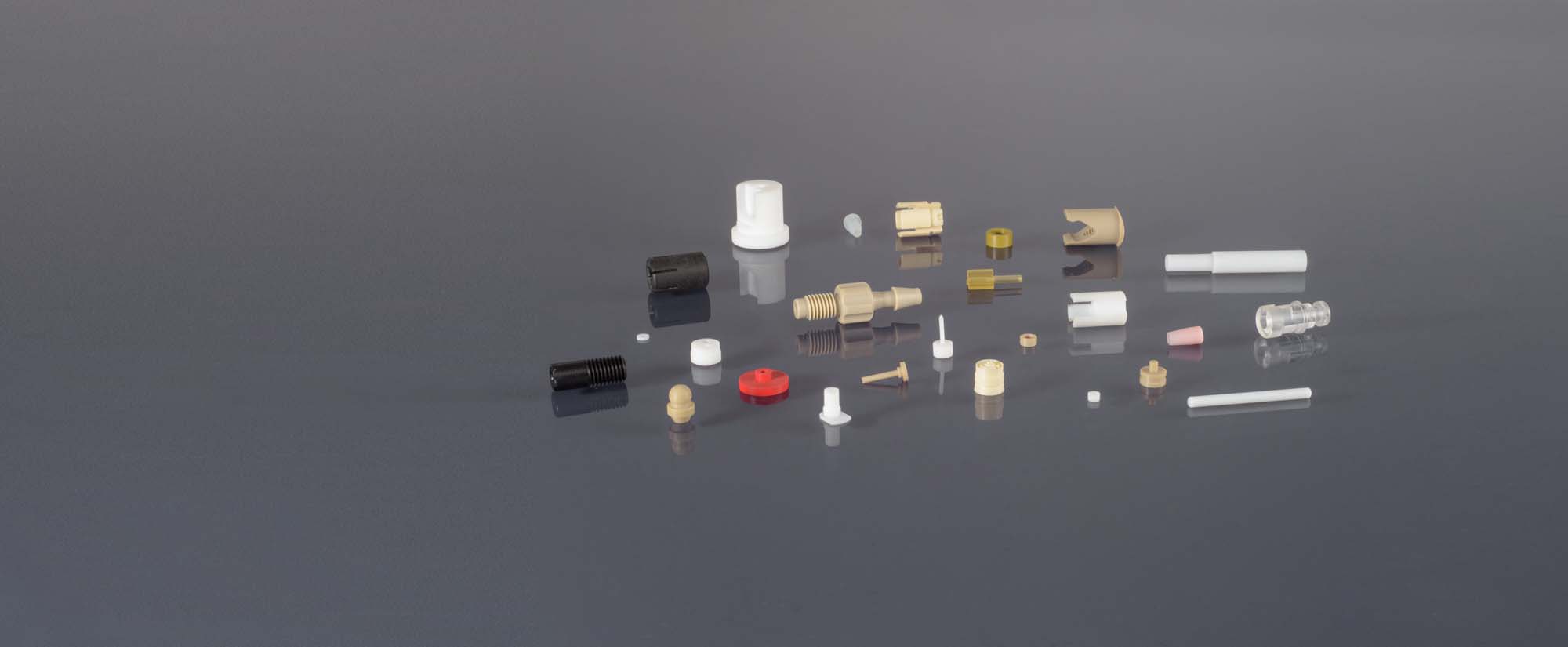Plastic components are fundamental to industries like aerospace, automotive, oil and gas, renewables, and construction due to their versatility, durability, and cost-effectiveness. However, failure points in plastic components can lead to costly downtime, safety risks, and non-compliance with regulations. Identifying and resolving these issues early is vital to ensuring operational efficiency and reliability.
At AFT Fluorotec, we specialise in engineering bespoke plastic solutions, offering unparalleled expertise in diagnosing and addressing failure points in plastic components. In this article, we’ll explore common causes of failure, how to identify them, and steps to resolve these issues effectively.
Understanding the Common Failure Points in Plastic Components
1. Material Degradation
- Causes: Exposure to UV radiation, chemicals, and extreme temperatures.
- Signs: Discolouration, brittleness, and surface cracking.
- Solutions: Use high-performance materials like fluoropolymers, which resist chemical and environmental degradation.
2. Mechanical Stress and Wear
- Causes: Overloading, repetitive stress, and abrasive conditions.
- Signs: Fractures, deformation, and surface erosion.
- Solutions: Implement reinforced designs or opt for wear-resistant materials such as PTFE or PEEK.
3. Design Flaws
- Causes: Insufficient tolerances, poor load distribution, or incorrect material selection.
- Signs: Premature failure under expected operating conditions.
- Solutions: Collaborate with experts to optimise design for the intended application, incorporating stress analysis tools.
4. Manufacturing Defects
- Causes: Inconsistent moulding, impurities, or voids during production.
- Signs: Weak joints, uneven surfaces, and structural inconsistencies.
- Solutions: Rely on precision manufacturing techniques to ensure consistent quality and adherence to specifications.
5. Application Incompatibility
- Causes: Using materials unsuitable for the operational environment.
- Signs: Rapid wear, chemical reactions, or failure under specific conditions.
- Solutions: Conduct compatibility tests to select materials suited for the operational demands.

The Role of Predictive Analysis in Preventing Failures
Predictive analysis leverages tools like lifecycle testing and failure analysis to foresee potential issues before they arise. By implementing these techniques, engineers can:
- Identify Weaknesses Early: Detect vulnerabilities during the design and testing phases.
- Reduce Costs: Prevent expensive repairs and downtime by resolving issues proactively.
- Enhance Reliability: Deliver components that exceed industry standards for performance and durability.
At AFT, we utilise advanced testing methodologies to ensure our solutions meet and exceed client expectations.
Steps to Diagnose and Resolve Plastic Component Failures
1. Assess Operational Environment and Conditions
Understand the stresses and environmental factors the component will face, such as temperature fluctuations, chemical exposure, and load requirements.
2. Conduct Stress and Material Compatibility Tests
Perform detailed analyses to evaluate the material’s performance under simulated conditions, ensuring it meets the application’s demands.
3. Perform Root Cause Failure Analysis
Examine failed components to identify the exact cause of failure. This may include:
- Microscopic inspections.
- Mechanical property testing.
- Chemical resistance assessments.
4. Redesign or Select Materials Based on Findings
Leverage the insights from failure analysis to:
- Redesign problematic areas.
- Select advanced materials, such as fluoropolymers, to mitigate identified issues.
5. Implement Precision Manufacturing Practices
Ensure components are produced to the highest standards using advanced machining and quality control processes. AFT’s in-house capabilities guarantee precision and consistency.
How AFT Ensures Quality and Reliability in Plastic Components
At AFT Fluorotec, we’re committed to providing solutions tailored to your unique challenges. Here’s how we deliver exceptional quality and reliability:
- Fluoropolymer Expertise: Our deep knowledge of PTFE and other fluoropolymers ensures optimal material performance.
- Precision Engineering: We use state-of-the-art facilities to deliver components that meet exacting standards.
- Custom Solutions: Every project is approached with a focus on the client’s specific requirements, ensuring the best results.
Ensuring Sustainability Without Compromising Performance
Sustainability is a growing concern across industries. At AFT, we prioritise eco-friendly engineering by:
- Offering recyclable and long-lasting materials.
- Designing components to minimise waste and maximise efficiency.
- Implementing sustainable manufacturing practices.
Our commitment to sustainability ensures you receive high-performance solutions without compromising environmental goals.
How Can AFT Fluorotec Help You?
Identifying and resolving failure points in plastic components is crucial to ensuring durability, compliance, and operational efficiency. By partnering with AFT Fluorotec, you gain access to unmatched expertise in materials, design, and precision engineering.
Contact us today to learn how we can help you create reliable, sustainable solutions for your plastic component needs.
Common Questions
What is failure analysis of plastic parts?
Failure analysis involves investigating defective components to determine the root cause of failure and develop solutions to prevent recurrence.
How do you identify failure analysis?
By examining physical, chemical, and mechanical properties, and analysing operational conditions.
How do you find plastic strain at failure?
This involves using mechanical testing to measure the material’s deformation under stress.
What are the failure modes of plastic?
Common modes include fatigue, cracking, deformation, chemical degradation, and thermal instability.
What are the 4 modes of failure?
- Mechanical failure
- Environmental degradation
- Manufacturing defects
- Design inadequacies



